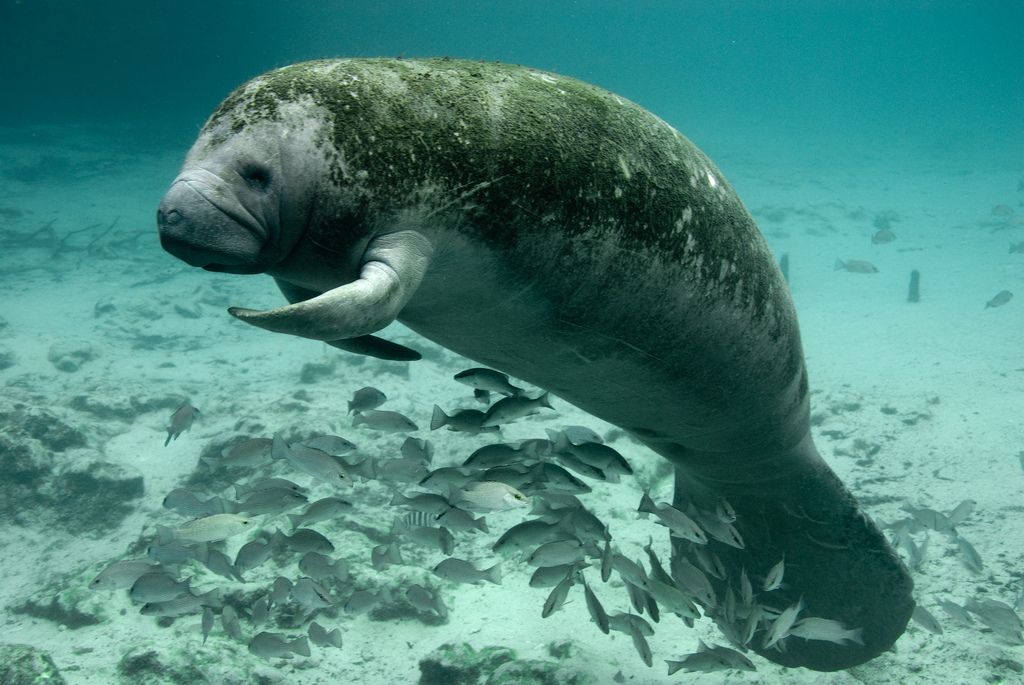OPINION: Stricter regulations are needed to save manatees

Florida’s manatees have been dying at an unprecedented rate in the past few years, and the U.S. Environmental Protection Agency (EPA) needs to intervene.
By stepping in and reevaluating water quality standards, the EPA may be able to stop the deaths of hundreds more manatees.
Environmental activist groups Save the Manatee Club, Center for Biological Diversity (CBD) and Defenders of Wildlife sued the EPA for its failure to ensure adequate water quality standards.
This problem has been especially prevalent in Florida’s Indian River Lagoon, an important manatee habitat. Earthjustice, the law firm representing these groups, filed this complaint May 10.
“The existing water-quality standards just aren’t strong enough to preserve this important ecosystem and save these amazing animals,” Ragan Whitlock, an attorney at CBD, said in a May 10 press release.
When the water quality regulations are not strict enough, or they are not properly followed, pollution gets out of control. This leads to an algal bloom which kills seagrass, a primary food source for the manatees.
“Florida’s beloved manatees will continue to suffer and die as long as EPA maintains inadequate water quality standards,” Jane Davenport, senior attorney at Defenders of Wildlife, said in the same press release.
Florida saw 1,101 manatee deaths in 2021, which is a drastic increase from the 637 deaths in 2020, according to a report by the Florida Fish and Wildlife Conservation Commission. A May 10 Earthjustice article states that more than half of these deaths are due to starvation caused by the algal bloom.
The 2022 report shows that as of May 6, about 541 manatees have died this year.
The EPA and Florida Department of Environmental Protection are responsible for protecting the bodies of water in Florida, and they have set “total maximum daily loads” for each individual pollutant affecting the water. An excess of these pollutants, particularly phosphorus and nitrogen, is what had led to this algal bloom, according to the Indian River Lagoon Encyclopedia.
These standards are not being correctly followed or enforced, according to the official complaint filed by Earthjustice. The EPA needs to strictly enforce the limits on these pollutants and reevaluate whether they are low enough to ensure the health and safety of the animals in these water bodies.
Manatees are a vital part of Florida’s ecosystem as they graze on underwater vegetation, preventing it from becoming overgrown, as stated in a 2019 Defenders of Wildlife article.
In addition to that, they are an indicator species, meaning that when they are thriving, their habitat is too. This is because they rely so heavily on their environment. Manatees mostly eat seagrass and remain in the same location which makes them more sensitive to changes in their environment.
When manatees are dying in mass numbers, as they have been, it shows that their habitat is deteriorating and desperately needs help.
There are already several laws in place to protect the manatees from humans like the Marine Mammal Protection Act of 1972. This act makes it illegal to touch, feed or harass manatees.
The state of Florida clearly believes manatees deserve to be protected, so it’s time it takes this next step. The manatees don’t only need to be protected from people, but also from the pollution being dumped into the waterways, destroying their main source of food.
By reevaluating water quality standards and putting stricter regulations in place, the EPA can help prevent any more unnecessary manatee deaths.







